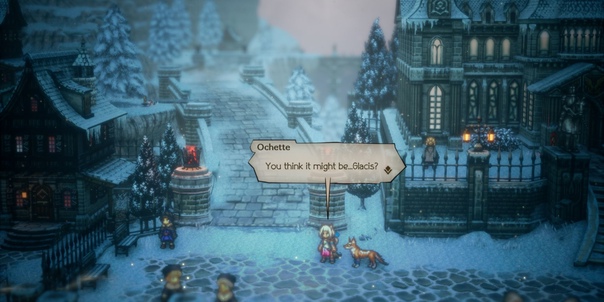The gaming world often eagerly anticipates the dawn of new hardware generations, bringing with it the promise of enhanced visuals, smoother performance, and innovative gameplay. A common expectation that accompanies these transitions is the ability to carry forward one`s game library, often through free or paid next-generation upgrades. However, a recent announcement regarding Square Enix`s highly anticipated Octopath Traveler 0 has thrown a rather perplexing wrench into these established norms, leaving many prospective players questioning the logic behind its unusual upgrade policy.
The `Zero` in Question: No Upgrades for You
When Octopath Traveler 0 was first unveiled, the “0” in its title likely alluded to a prequel or an origin story. Yet, as Square Enix clarified its stance on cross-generational purchases, the numerical suffix has taken on a rather ironic new meaning:
zero upgrade paths from the Nintendo Switch version to its impending successor, the Nintendo Switch 2.
“It is not possible to upgrade from the Switch version to the Switch 2 version once purchased. There are also no plans for an option to upgrade to the Switch 2 version in the future. Please make sure you purchase the correct version.”
This statement, originating from Square Enix`s Bluesky update, confirms that gamers wishing to experience Octopath Traveler 0 on the more powerful Switch 2 will need to purchase a brand-new copy, irrespective of their existing Nintendo Switch ownership. This stark policy stands in contrast to common industry practices, where publishers often facilitate smooth transitions for loyal customers, whether through complimentary upgrades or a nominal fee.
A Pattern of Peculiarity?
For those closely observing Square Enix`s recent activities, this decision might not come as a complete shock. Earlier this year, the company faced similar scrutiny over its handling of the physical versions of Dragon Quest I & II HD-2D Remake, where physical Switch copies did not guarantee access to a Switch 2 version. This recurring pattern suggests a potentially inconsistent corporate strategy regarding cross-platform entitlement, a strategy that, perhaps inadvertently, generates more questions than answers.
Adding another layer of intrigue, Square Enix itself has demonstrated a different approach with other titles. The upcoming remake of Final Fantasy Tactics, for instance, is confirmed to support free upgrades between the Nintendo Switch and Nintendo Switch 2. This internal discrepancy begs the question: What precisely dictates which games receive an upgrade path and which are left in the cold? Is it a matter of development complexity, contractual obligations, or a roll of the corporate dice?
The Game-Key Card Conundrum
Beyond the lack of an upgrade path, another detail regarding the Nintendo Switch 2 release of Octopath Traveler 0 has fueled further discontent: the reported use of “Game-Key cards.” Unlike traditional physical cartridges that contain the full game data, these cards provide merely a download code, effectively turning a “physical” purchase into a digital license. This trend is a sore point for game preservationists and collectors who value true physical ownership, free from the vagaries of digital storefronts and server shutdowns.
This means players are presented with a rather unappealing binary choice:
- Purchase the technically less capable Nintendo Switch version, which at least comes on a traditional physical cartridge.
- Opt for the enhanced Nintendo Switch 2 version, but accept that their “physical” purchase is, in essence, a digital download code tied to their console.
It`s a decision that pits graphical fidelity against tangible ownership, a dilemma many gamers would prefer not to face. The chorus of replies on Square Enix`s Bluesky post certainly suggests a lack of enthusiasm for either compromise.
The Broader Implications for Gaming
This situation with Octopath Traveler 0 is more than just a single game`s release policy; it highlights broader industry discussions surrounding consumer rights, game preservation, and the evolving definition of “ownership” in the digital age. As hardware iterations become more frequent and digital distribution increasingly dominates, clear, consistent, and consumer-friendly upgrade policies are paramount.
While game developers and publishers navigate the complexities of multi-platform releases and cross-generational transitions, the onus remains on them to build and maintain trust with their audience. When policies appear arbitrary or inconsistent, particularly from a major publisher like Square Enix, it can erode goodwill and leave players feeling undervalued.
As Octopath Traveler 0 gears up for its launch on December 4, 2025, across Nintendo Switch, Switch 2, PS5, PS4, Xbox Series X|S, and PC, the debate over its curious upgrade policy will undoubtedly continue. For now, prospective travelers in this octo-path world must choose their journey wisely, knowing that a generational leap may cost them more than just an extra purchase.







